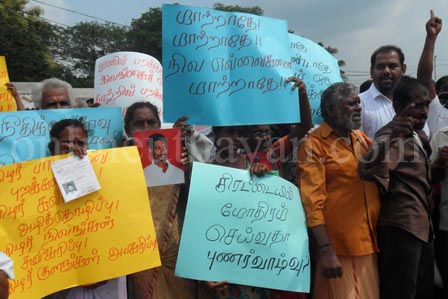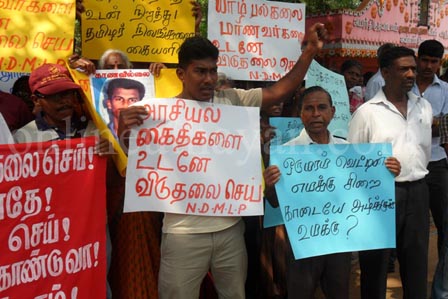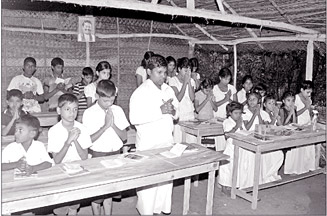In a statement released on Friday, the Tamil Refugee Council have strongly rejected comments made by the Sri Lankan High Commissioner to Australia that groups calling for a boycott of Sri Lanka’s cricket tour have “terrorist” connections.
TRC spokesman, Mal Bala said,
“The Admiral’s comments are not just laughable. It is insulting to these people to be told they are connected to terrorism”.
Responding to comments by the High Commissioner that he has brought up the planned leafleting campaigns and protests against the cricket tour with “relevant authorities”, Bala responded,
“Thanks to freedom of speech here we can do it. But if you did it in Sri Lanka you would quickly be disappeared into the bowels of a torture centre.”
See the full text of the statement below.
OFFICIAL STATEMENT BY TAMIL REFUGEE COUNCIL
DECEMBER 14, 2012
WE ARE NOT TERRORISTS, SAYS TAMIL REFUGEE ADVOCATES
MELBOURNE, Friday -- The Tamil Refugee Council strongly rejects the claim by the Sri Lankan High Commissioner to Australia that Tamils in Australia have terrorist connections.
TRC spokesman, Mal Bala, said the high commissioner, Admiral Thisara Samarasinghe, had cast unjust and unp
roven aspersions upon many groups that have spoken out against the murder and persecution of Tamils in Sri Lanka.
These groups, including refugee advocates, church groups, journalists, ordinary citizens and Australian Tamils, were doing no more than stating the truth and trying to help people in desperate need.
“The Admiral’s comments are not just laughable. It is insulting to these people to be told they are connected to terrorism.” Bala said today.
“The Admiral always claims that everyone else who presents the facts about the Sri Lankan Government’s killing and ethnic-cleansing of Tamils -- and this includes such independent bodies as the United Nations --are telling lies,” Bala said.
“I think he needs to step out of his world of propaganda and into the real world.”
Admiral Thisara Samarasinghe said in an ABC Radio Australia interview on Wednesday that terrorist organisations around the world – including Australia -- were still advocating for a separate Tamil state in Sri Lanka.
He said that a planned protest to call for a boycott of Sri Lankan cricket on Boxing Day at the MCG was helping terrorists and, in a quote that inferred freedom of speech was denied in Sri Lanka, he said that protesters were taking advantage of Australia’s freedom of expression laws.
Admiral Samarasinghe also indicated he wants to stop the protest. “I have taken up the matter with the relevant authorities (about) these allegations and these planned events, distributing leaflets, having demonstrations. These are all part of a long-term plan and game plan,” he said.
“This (protest) is a way of bringing discredit to the country. People with vested interests are still active. These situations are playing into the hands of such terrorist organisations which are smarting at their defeat (in the civil war in 2009),” Admiral Samarasinghe said in the interview.
He was then asked which specific terrorist organisations were duping the protesters.
“The terrorist organisations operating in the rest of the world in different names and different forms are still trying to propagate and advocate separatism in our country,” he replied.
He was then asked whether he was referring to a revived grouping of the Tamil Tigers (LTTE).
“Terrorism is not present in Sri Lanka. But the Tamil Tigers, they are propagating. It is there for everybody to see in various parts of the world.
“The so-called diaspora is agitating. There are calls for separatism still, including on Australian soil. Taking advantage of freedom of speech and freedom of expression, these organisations are collecting money openly; say, $1 a week or $50 a year concept and this has been conveyed. This situation does exist.”
Bala commented: “Thanks to freedom of speech here we can do it. But if you did it in Sri Lanka you would quickly be disappeared into the bowels of a torture centre.”
Please contact Mal Bala (0404 431 913), Tamil Refugee Council, for any further information.



